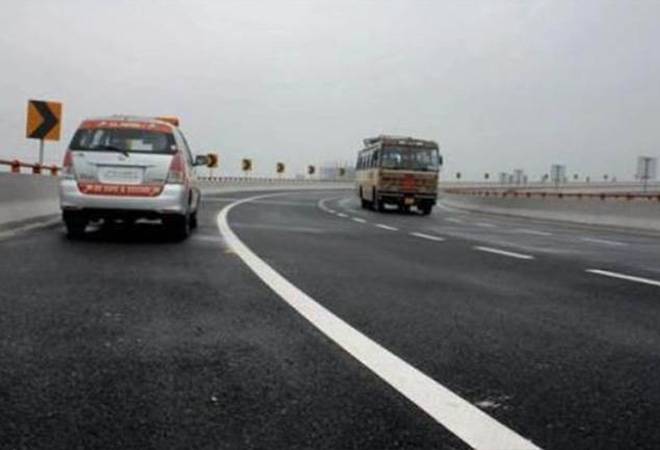The proposed 290 km long greenfield Surat-Nashik-Ahmednagar section of the corridor falls in pristine and untouched areas of the ecologically sensitive Western Ghats.
The Surat-Chennai economic corridor project valued at near Rs 14,000 crore has run into trouble with the Expert Appraisal Committee (EAC) for Infrastructure projects set up by the Union Environment ministry, over its proposed 290 km long greenfield Surat-Nashik-Ahmednagar section which falls in pristine and untouched areas of the ecologically sensitive Western Ghats.
Months ahead of assembly elections in Gujarat, a key segment of the ambitious Surat-Chennai economic corridor has hit a serious green hurdle.
The near Rs 14,000 crore project has run into trouble with the Union Environment ministry’s Expert Appraisal Committee (EAC) for Infrastructure projects, over its proposed 290 km long greenfield Surat-Nashik-Ahmednagar section which falls in pristine and untouched areas of the ecologically sensitive Western Ghats.
The EAC has, in a July 21-22 meeting, said that the stakeholder ministry/department should upgrade on the existing National Highway alignment instead of running into ‘virgin and ecologically sensitive new parts of Western Ghat areas’.
Given the significance of the corridor, the Ministry of Road Transport & Highways (MORTH) and the National Highways Authority of India (NHAI) are preparing to ‘appeal’ with the Environment ministry to reconsider its view and allow leeway for the national connectivity project which will ultimately link up Delhi to Chennai through an access-controlled corridor, ET has learnt.
The project has also been a major political and economic talking point for the infrastructure boost it will bring to the region.
“We will appeal with the EAC. Packages for so many segments linking up to this corridor have already been awarded. This was to be an access-controlled expressway- a key link off the Golden Quadrilateral for national connectivity. We are very mindful of environmental concerns and have always prioritised them and the new alignment will in fact reduce affected area and use modern technology to minimise environmental damage. However, there is no other alternative alignment possible and upgrading the existing one defeats the very purpose of the corridor”, a senior official told ET.
The EAC has also noted in its July 21 meeting that the total travel length of the existing road (NH-848)- Surat-Mumbai- is 136 Kms while the proposed greenfield is 107 Kms. The likely travel time after improvement on existing road is 3 hours but a greenfield corridor would bring it down to 1 hr 10 min.
However, the EAC has opined that this ‘marginal reduction’ of travel length and time in the new proposed alignment, is expected to ‘overweigh the cost of environmental damages to the Western Ghat in the existing alignment’.
It has further observed that developmental activities in virgin and ecologically sensitive new parts of Western Ghat areas around the proposed alignment will overweigh the damages caused by the option of retrofitting/improving/upgrading the existing road/alignment.
It has, accordingly, advised that the NHAI instead work on and finalize the existing alignment in all respect instead of pursuing the greenfield alignment through the Western Ghats.
The issue has been coming back and forth to the EAC since November 2021.
The EAC had then noted that the 70 meter Right of Way planned for the corridor would have a ‘high impact’ to the environment as it would pass through 428 hectares of forest land and directly affect over 265 ha area, cross rivers like Ambika, Kaveri, Kharera, Sasu, Man, Par, Godavari, Mula and Dev Nandi and impact over 14,000 trees. Tunnels planned would impact the water drain age in the region and any new alignment in the Western Ghats would have a ‘negative impact’ on the environment.
It had constituted a sub committee as well for a site visit which was conducted on April 20-21.
The NHAI had then submitted that the affected forest area and water bodies as well as structures would be far lesser on the new alignment vis a vis upgradation of the existing NH 848 in the Western Ghats region.
The subcommittee, however, felt that there were ‘few marginal advantages’ on the proposed greenfield alignment across all aspects.
It had also said that while affected forest area is more on the existing alignment, developmental activity has been ongoing there and upgrading it will at least ‘spare the pristine area of the proposed alignment’.
Officials from MORTH and NHAI, on the other hand, point out that upgrading the exiting NH 848 will defeat the very purpose as the greenfield Surat-Ahmednagar economic corridor is part of the larger access controlled connectivity plan between Delhi and Chennai and is crucial to ease the heavy traffic off the Surat-Maharashtra border on the existing highway.
They also point out that environmental impact and damage will be more in upgrading the NH 848 in the western ghat terrain vis a vis the tunnel and viaduct approach planned for the new alignment.







